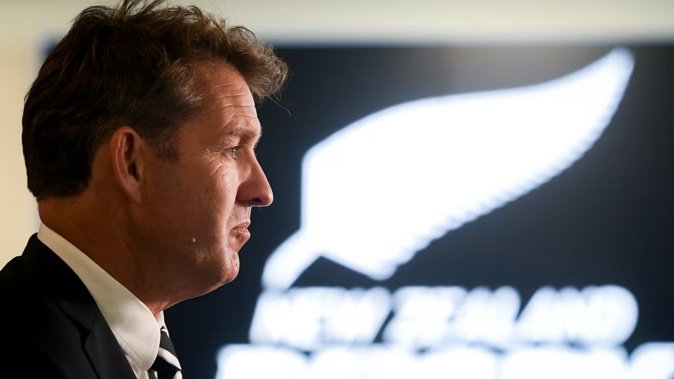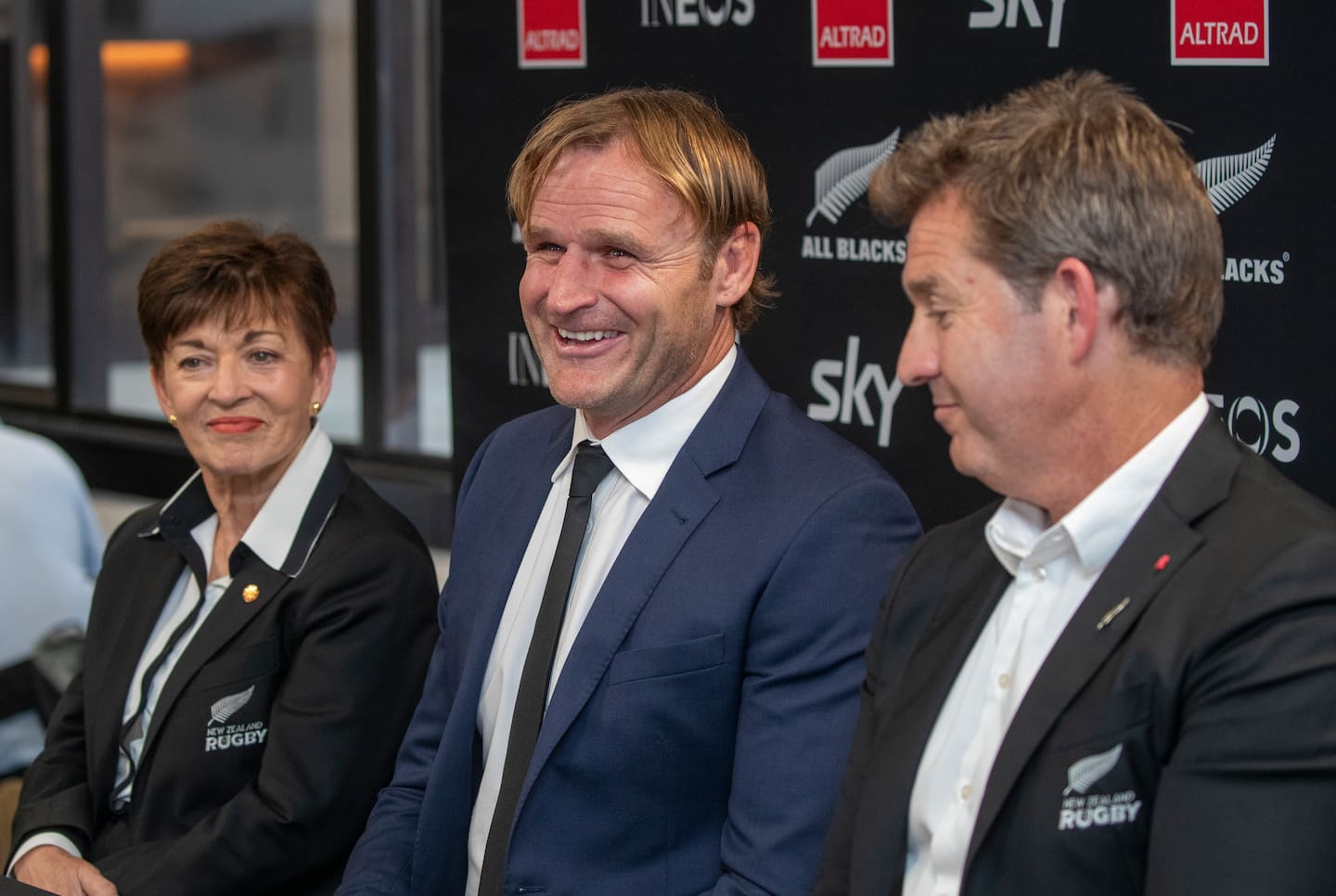
New Zealand Rugby (NZR) chief executive Mark Robinson is adamant selection policies won’t relax under head coach Scott Robertson, in regards to overseas-based All Blacks being eligible while based offshore.
NZR powerbrokers have expressed their desire for a change to the eligibility rules – which don’t allow Kiwis playing abroad to represent New Zealand unless granted a sabbatical clause by the national union in their contract.
However, after the All Blacks’ victory over Fiji in San Diego, Robinson told the Herald a change to this is improbable.
“Overall, we’re reasonably happy in that space,” he said.
“We believe the current eligibility rules we have work for us and are really important to our success.”
NZR’s beliefs contrast those of Robertson, who in January expressed the importance of staying ahead of the rapidly changing landscape of international rugby.
“What I presented to the board, the CEOs of Super Rugby, the PUs [provincial unions], Heartland, I explained about keeping an open mind to where we are in that space, that’s what I’ve asked for,” Robertson said.

New Zealand Rugby chair Dame Patsy Reddy (from left), Scott Robertson and NZR CEO Mark Robinson speak to the media. Photo / Mark Mitchell
New Zealand is one of just three tier-one national unions to make use of the rule, alongside England and Ireland. NZR implements the rule to help maintain a high standard of domestic competition in Super Rugby Pacific and the NPC (National Provincial Championship).
South Africa, meanwhile, has no such criteria and has won the last two Rugby World Cups with players based abroad.
Depsite this, Robinson believes NZR’s current sabbatical model is sufficient.
“The All Blacks and New Zealand Rugby will always keep an open mind to these things – but at the same time, we think we’ve got a good degree of flexibility at the moment around long-serving players and we have a really great contracting model and team that work really hard to understand the needs of the players.
“When I look forward to 2027 the amount of long-term retention, we’ve got of our leading players we’re really comfortable with that at the moment and don’t see a need for any radical change at this stage.”
With concern surrounding NZR’s depth in the influential first five-eighths role, as reported by the Herald in May, it’s understood that Robertson’s instigated moves to coax No 10 Richie Mo’unga home before his contract with Toshiba ends in mid-2026.
NZR general manager of professional rugby Chris Lendrum admitted on the Rugby Direct Podcast there was an attempt to entice the 56-test playmaker home early.
This year, centurion halfback Aaron Smith and Mo’unga have encouraged a rule review. Former captain Sam Cane also challenged NZR’s status quo as he was unveiled for Suntory Sungoliath at the end of 2023, while still captain of the All Blacks
Mo’unga was one of seven All Blacks who left for Japan after the 2023 World Cup. Cane, Ardie Savea and Beauden Barrett were the only players on an agreed sabbatical.
Conversely, the All Blacks are without Shannon Frizell and Leicester Fainga’anuku, who left for Japan and France respectively because the contracts offered were too lucrative to turn down.
Robertson has a 67% win rate after his first six tests at the helm. The All Blacks lost to Argentina in Wellington and South Africa in Johannesburg after a couple of close calls against England in early July. The results have posed doubt whether a lack of there is enough depth in key positions.
Herald rugby writer Gregor Paul wrote after the All Blacks’ most recent loss to South Africa: “The biggest takeout from the Ellis Park defeat is that New Zealand Rugby’s insistence that the All Blacks’ eligibility laws remain fit for purpose was shown to be the self-destructive fallacy it is.
“Denying head coach Scott Robertson access to either Richie Mo’unga or Shannon Frizell – both currently based in Japan – makes no sense when considered against the wider context of NZR’s financial master plan of squeezing every dollar it can out of the All Blacks brand.”
Across the Tasman, Rugby Australia has implemented what’s become known as “Giteau’s Law”, where a capped number of players can be picked for the Wallabies, provided they meet certain criteria.
Speaking to Newstalk ZB in June, Giteau said he did not believe NZR needed to follow such an example, due to the nature of talent development pathways in Aotearoa.
That same month, Mo’unga told the Herald before the year’s season-opening test against England in Dunedin he saw both sides of the argument, where NZR must protect its own interests, but also something must change in the risk of losing players to more lucrative overseas deals.
“I will say they need to put something in place,” he said. “You’re going to see a lot more Kiwi players leaving New Zealand to play in Japan.
“You will see players leaving way earlier than what New Zealand players were leaving four or five years ago. So you want plans in place to protect those players as well, so they’re not heading off overseas.
“Every rugby club is different and every country has their own rules, but I left knowing that these were the rules and I wouldn’t be able to play [for the] All Blacks in 2024 and 2025.”
Bonnie Jansen is a multimedia journalist in the NZME sports team. She’s a football commentator and co-host of the Football Fever podcast and was part of the Te Rito cadetship scheme before becoming a fulltime journalist.
Take your Radio, Podcasts and Music with you









